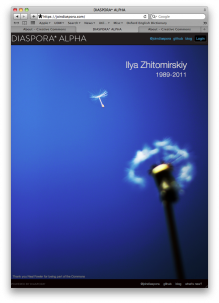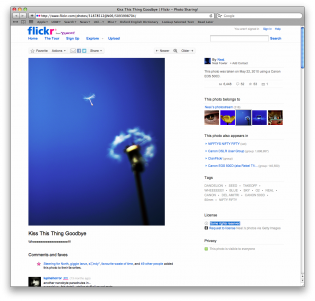Openness Online
In an ironic concept and play on words, many creatives have began branding their work with the term ‘copyleft’.
As opposed to the legal restrictions and requirements of copyright laws, copyleft is intended to focus on allowing full access to works and any further extended and modified versions.
The concept has began expanding throughout the music industry as well as with designers, artists and other professions were intellectual property is produced.
Due to the rise in popularity of open source software and the evidence of potential in the concept, in 2005 the European Union funded an initiative called FLOSS World. An acronym or Free Libre Open Source Software.
Focussing on bringing together communities of developers not just across Europe but in other countries such as Argentina, Brazil, Bulgaria, China, Croatia, India, Malaysia and South Africa.
As well as Processing, Arduino and a host of other freeware, open source applications that have been embrace by the online developer and designer community, MIT has also introduced its own licensing system for ope source software.
The MIT License is a free software license originating at the Massachusetts Institute of Technology (MIT). It is a permissive license, meaning that it permits reuse within proprietary software on the condition that the license is distributed with that software.
The Open Source Initiative acts as a governing body of sorts for the open source community. Essentially they run to make sure software developers that claim their work is open source are following the full practice with full transparency. The OSI also promote open source software by educating developers, designers, and users about the advantages of open source software and collaboration techniques.
The following list is lifted from the open source initiative site:
The Open Source Definition
1. Free Redistribution
2. Source Code
3. Derived Works
4. Integrity of The Author's Source Code
5. No Discrimination Against Persons or Groups
6. No Discrimination Against Fields of Endeavor
7. Distribution of License
8. License Must Not Be Specific to a Product
9. License Must Not Restrict Other Software
10. License Must Be Technology-Neutral

The Creative Commons is a licensing body that takes the approach of working as an alternative copyright fully tailored for the web. With so much information; be it photos, videos, design work and other forms of art, being instantly available online, Creative Commons takes the approach of giving users a new way of licensing their work that allows it to be used within the community and even for commercial use. One example I came across was on the Diaspora social network web site they featured a large image on their homepage. Essentially what they had done is use an image they found on Flickr that had the Creative Commons licence for free use by all. I fully agree with this concept as long as it's a two way street and those who use the material also share their own.




Open Street Map is a combination of Wikipedia and Google Maps. The project allows for the viewing, editing, altering and adding of landmarks, shops etc. to geographical data in a collaborative way from anywhere on Earth.
I've embedded a map of the Harrow Campus here by pasting the HTML iframe code into a text box within HotGlue allowing me to embed a movable object like the one above.
Open Access Week is an annual global event, that most recently ran from October 24th-30th in 2011, aimed at promoting the idea of open access particularly in the area of higher education and universities. They strive to promote the free, immediate, online access to the results of scholarly research, and the right to use and re-use those results as you need. There's similar practices running within the design world, mainly through copyleft and creative commons, but it's interesting to see the other lengths gone to be other areas of education and industry.
Free Culture Movement
The free culture movement is a social movement that promotes the freedom to distribute and modify creative works in the form of free content by using the Internet and other forms of new media. In a sense it acts as a more people driven community incarnation of Creative Commons. The movement objects to over-restrictive copyright laws. Many members of the movement argue that such laws hinder creativity.